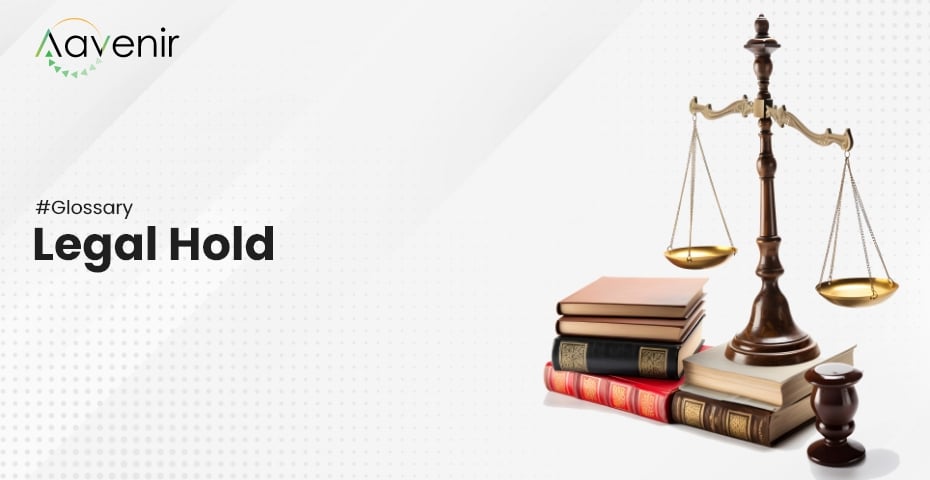What is Legal Hold?
Legal hold, also known as litigation hold or preservation order, refers to the process of preserving and protecting relevant documents and data that may be subject to litigation, investigation, or regulatory compliance requirements. It is a crucial aspect of legal operations, ensuring that potential evidence is safeguarded and cannot be altered, deleted, or destroyed.

Purpose of Legal Hold – Preserving and Safeguarding Documents
During this process, organizations are required to identify and retain all relevant documents, including contracts, emails, electronic records, and other data pertinent to the legal matter at hand. This includes both physical and electronic records, such as paper documents, computer files, and data stored in cloud-based systems.
Implementing a legal hold involves notifying custodians or individuals who possess potentially relevant information about the obligation to preserve such data. The notification is typically issued by the legal department or designated personnel and includes instructions on complying with the requirements.
The primary purpose of this preservation is to prevent the spoliation or destruction of evidence and ensure that all relevant information is available for legal proceedings. Failure to properly implement and maintain this preservation can result in severe consequences, including adverse inference or sanctions.
Organizations often rely on legal hold software or technology solutions as part of their legal operations to streamline and automate the process. These solutions help manage the notification process, track compliance, and provide audit trails for related activities.
Understanding Legal Hold in Contract Management
In contract management, “legal hold” refers to the process of preserving specific contracts and contract-related documents relevant to ongoing or anticipated legal matters. It is a precautionary measure taken to ensure that relevant contracts and associated information are not altered, deleted, or destroyed, as they may be required for legal proceedings, investigations, or audits. This process helps organizations comply with legal obligations, preserve evidence, and mitigate potential risks associated with contract disputes or legal actions.
How to Avoid Contract Disputes: Tips and Strategies for Legal Professionals? Read More>>
In a Contract Lifecycle Management (CLM) solution, the legal hold feature allows organizations to easily identify and designate contracts and contract-related documents for preservation during legal proceedings or investigations.
Here’s how this feature can be implemented:
Tagging and Flagging
The CLM solution provides the ability to tag or flag specific contracts or documents for preservation. This can be done manually by users or automatically based on predefined criteria, such as keywords or metadata.
Access Restrictions
Once a contract or document is placed under preservation, the CLM solution ensures that it cannot be modified, deleted, or accessed by unauthorized users. Role-based access restrictions and permissions are enforced to maintain the integrity and security of the held items.
Version Control
The CLM solution tracks and maintains a complete audit trail of any changes made to the contract document or metadata during the preservation period. This includes capturing the date, time, and user responsible for each modification, ensuring transparency and accountability.
Version control plays a crucial role during legal litigation, providing essential audit information.
Notification and Reminders
The CLM solution can send automated notifications and reminders to relevant stakeholders, such as legal teams or compliance officers, to keep them informed about the status of contracts under preservation and any upcoming deadlines or actions required.
Release Management
Once the preservation is no longer necessary, the CLM solution provides a mechanism to release the hold and resume regular contract management activities. This may involve obtaining approval from authorized personnel and documenting the release process for future reference.
By incorporating the litigation (legal) hold feature into a CLM solution, organizations can effectively manage the preservation of contracts and associated documents during legal matters, ensuring compliance, mitigating risks, and facilitating smooth legal proceedings.
Explore Additional Resources To Know More


« Back to Glossary Index

